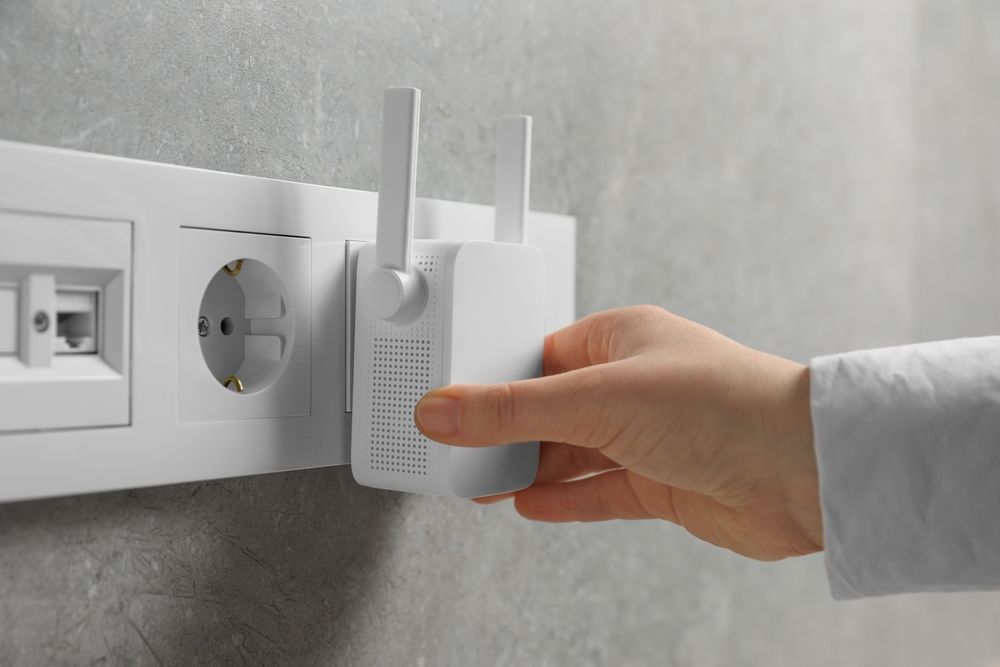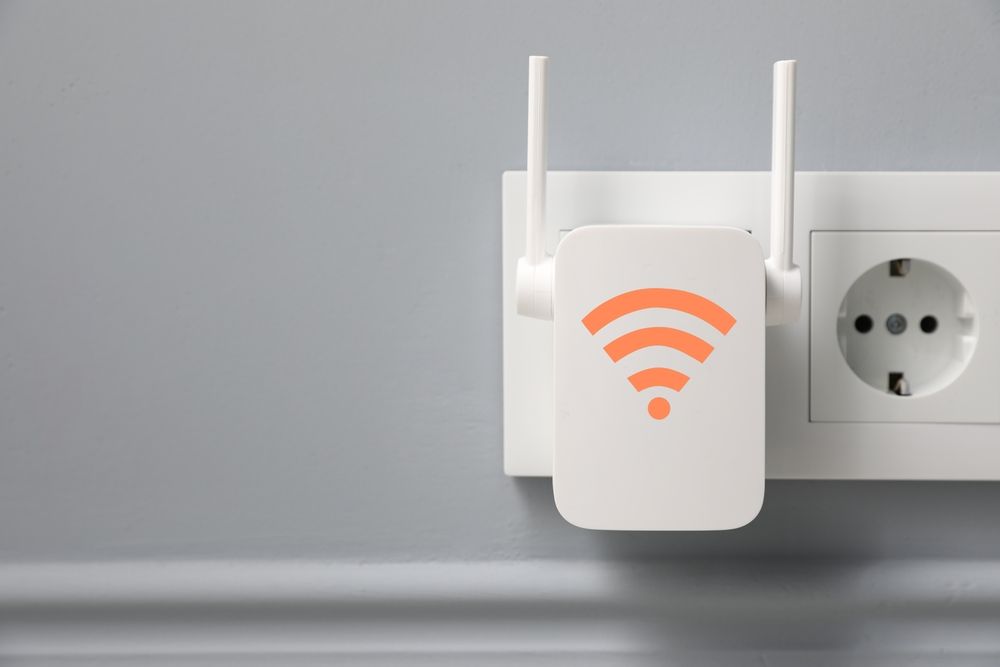Wi-Fi extenders are becoming increasingly popular as a solution to weak or inconsistent internet signals in homes and offices. Whether you’re experiencing dead zones in certain rooms or your internet speed is sluggish, a Wi-Fi extender could be just what you need to improve your connection. However, before rushing out to buy one, it’s essential to understand how Wi-Fi extenders work, the factors to consider, and how they can impact your network. This article will guide you through everything you need to know before purchasing a Wi-Fi extender.
What Is a Wi-Fi Extender?
A Wi-Fi extender, also known as a range extender, is a device designed to amplify and extend the coverage of your existing Wi-Fi network. It picks up the signal from your router, boosts it, and then broadcasts it to areas in your home or office where the signal is weak or absent.
Think of it like a relay runner who takes the baton (your internet signal) from the router and passes it on to the next stretch of your home that needs a stronger signal. By using a Wi-Fi extender, you can enjoy a more reliable internet connection in areas that would otherwise be out of range.
How Wi-Fi Extenders Work
Wi-Fi extenders typically connect to your home network via wireless or wired methods. Once set up, the extender will communicate with your router, capture its signal, and broadcast it to distant areas of your property. Some Wi-Fi extenders also have Ethernet ports, which allow you to hardwire certain devices like a desktop PC or gaming console to get the fastest possible connection.
It’s important to note that while Wi-Fi extenders boost the signal, they don’t increase the bandwidth or speed of your network. So, if you have a slow internet connection to begin with, a Wi-Fi extender won’t magically increase your speed; it will only help to improve coverage in weak areas.
When Should You Consider Buying a Wi-Fi Extender?
Before deciding to purchase a Wi-Fi extender, it’s important to assess whether you really need one. Here are some common scenarios where a Wi-Fi extender can be beneficial:
-
Dead Zones in Your Home: If you have certain rooms or floors in your home where the Wi-Fi signal is weak or nonexistent, an extender could help eliminate these dead zones by broadcasting a stronger signal to those areas.
-
Large Homes or Offices: In large homes or multi-story buildings, the signal from your router may struggle to reach every corner. An extender can help fill in the gaps by repeating the signal in distant parts of the property.
-
Improving Streaming or Gaming Performance: If you experience buffering or lag when streaming videos or playing online games, a Wi-Fi extender might help ensure a more stable connection by improving signal strength.
-
Low-Speed Internet: If you have a large number of devices connected to your network, such as smartphones, laptops, smart TVs, and IoT devices, the Wi-Fi signal may become overloaded. A Wi-Fi extender can help balance the load and ensure that each device receives a stable connection.

Factors to Consider Before Buying a Wi-Fi Extender
While Wi-Fi extenders can be very effective, it’s important to make an informed decision before making a purchase. Here are some factors to keep in mind:
1. Compatibility with Your Router
Not all Wi-Fi extenders work with every router. Before purchasing an extender, make sure it is compatible with your existing Wi-Fi router. Some Wi-Fi extenders are designed specifically for certain brands or models of routers, so check the specifications and make sure the device will work seamlessly with your network.
For example, if you have a dual-band router (which operates on both 2.4 GHz and 5 GHz bands), make sure the extender supports both bands. Extenders that support both bands are typically faster and more reliable, as they allow for more flexible connectivity.
2. Speed and Performance
Wi-Fi extenders are designed to improve signal coverage, but they also come with different performance levels. Some extenders support faster Wi-Fi speeds than others, so it’s important to choose one that matches the speed requirements of your household or office.
If you’re using the internet for activities like HD video streaming, online gaming, or video conferencing, you’ll want an extender that offers high-speed performance. Look for extenders that support Wi-Fi 5 (802.11ac) or Wi-Fi 6 (802.11ax) for optimal speed and range. Wi-Fi 6 extenders are especially beneficial for homes with multiple devices, as they provide better efficiency and faster speeds.
3. Coverage Area
Consider the size of the area you need to cover when choosing a Wi-Fi extender. Some extenders are designed to cover small to medium-sized homes, while others are meant for large properties with multiple floors.
Manufacturers typically list the approximate coverage area for each extender, so be sure to check the specifications to ensure the device can cover the square footage of your home or office. In larger spaces, you may need more than one extender or a mesh Wi-Fi system, which offers more comprehensive coverage across larger areas.
4. Ease of Setup
While Wi-Fi extenders are generally easy to set up, the process can vary depending on the device. Some extenders are plug-and-play, meaning you simply plug them into a power outlet, and they automatically connect to your existing network. Others may require manual configuration via a web interface or app.
If you’re not tech-savvy or want a hassle-free installation, look for extenders that come with clear instructions or an easy-to-use app for setup. Many modern extenders offer simple mobile apps that guide you through the installation process step by step.
5. Price vs. Features
Wi-Fi extenders vary widely in price, depending on the brand, features, and performance. While it’s tempting to opt for the cheapest option, consider what features you truly need. For example, a high-performance extender with a built-in Ethernet port or one that supports multiple Wi-Fi bands may be more expensive but offer a better overall experience.
Don’t forget to factor in the long-term costs, such as electricity consumption. Some extenders are energy-efficient, while others can use more power when running constantly.
6. Security Features
Security is an important consideration when setting up any Wi-Fi device, including extenders. Look for extenders that offer WPA3 encryption, the latest and most secure Wi-Fi security protocol. This ensures that your extended network is as secure as your main Wi-Fi network.
Many extenders allow you to customize security settings during the setup process. Be sure to set a strong password for your extended network to prevent unauthorized access.
7. Wi-Fi Mesh Systems as an Alternative
While Wi-Fi extenders can help improve coverage, Wi-Fi mesh systems are another option to consider. A mesh system consists of multiple devices that work together to create a seamless, unified network across your home or office. Unlike extenders, which rebroadcast a single Wi-Fi signal, mesh systems create a more consistent and reliable connection by using several nodes to cover a larger area.
Mesh systems are often more expensive than extenders, but they can offer better overall performance, especially in larger spaces with multiple devices. If you’re looking for a long-term solution with better coverage and speed, a mesh Wi-Fi system might be worth the investment.
Wi-Fi extenders can be a great solution for improving coverage in areas of your home or office where the Wi-Fi signal is weak. However, it’s important to make sure that an extender is the right solution for your needs. Before purchasing, consider factors such as compatibility with your router, speed and performance requirements, coverage area, and ease of setup.
For smaller spaces with minor coverage issues, a Wi-Fi extender can be an affordable and effective option. For larger spaces or more complex needs, you might want to consider a Wi-Fi mesh system as an alternative. Whatever option you choose, a Wi-Fi extender or mesh system can help ensure that you have a strong and reliable connection throughout your home or office.



